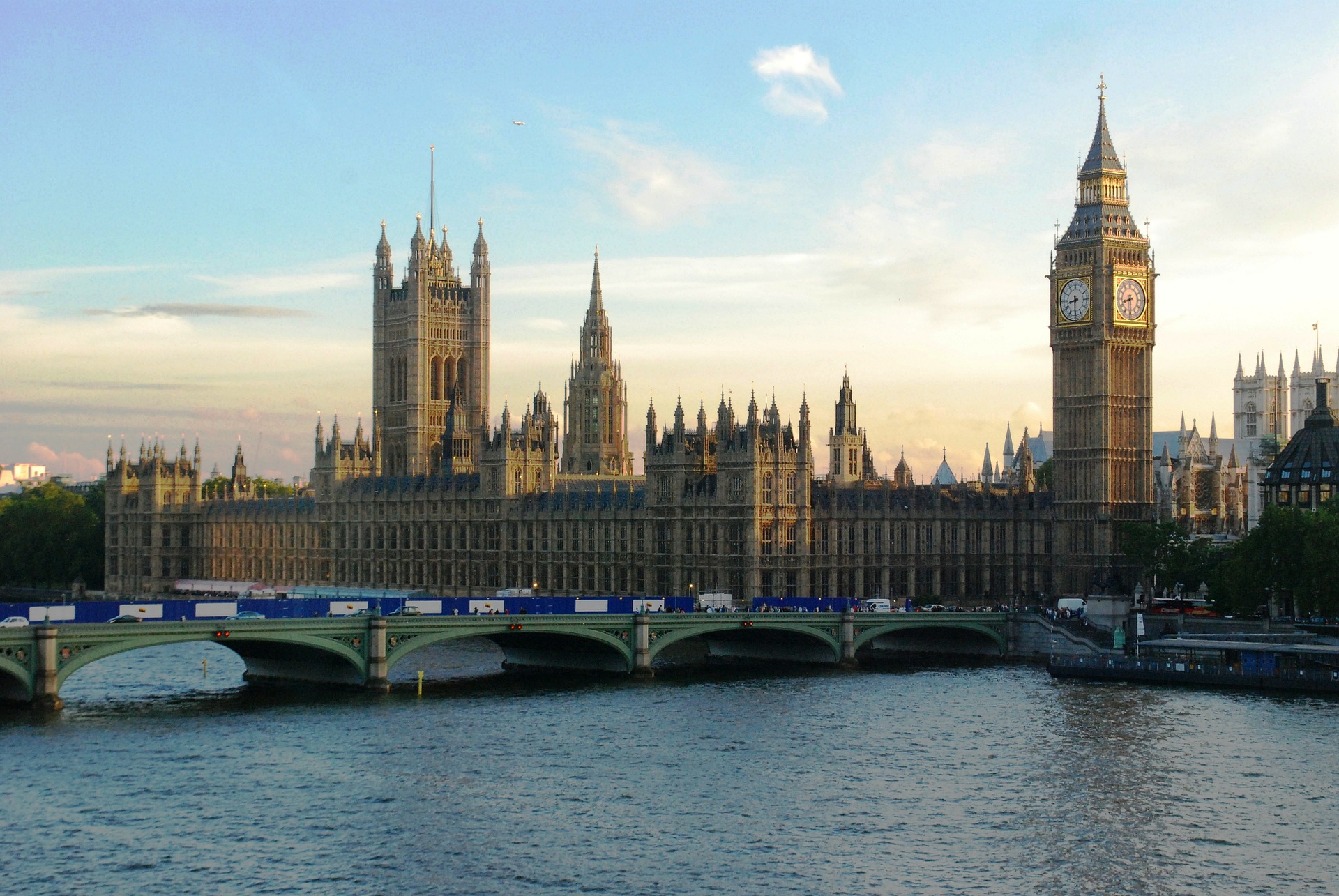
Victoria’s Secret sold to US private equity firm
February 23, 2020
Clear the Lobby: What laws are MPs voting on this week (w/c 23rd February)?
February 23, 2020The round-up of the stories that a budding Student Lawyer should be aware of this week. Sign up here to get these updates in your inbox every week.
HS2 Railway: High Speed High Controversy
Article by Gina Asadi (recent BPP LLM Legal Practice (Solicitors) graduate)
The High Speed 2 railway (‘HS2’), a concept that was conceived by the Labour Government in 2009 has finally been given the go ahead by the Prime Minister. The approval was given to the first phase of the route, which will see trains travel between London and Birmingham in 2026; while the second phase will include travel between Birmingham, Manchester and Leeds in 2032-33.
In January 2009, an investigation was conducted by HS2 Ltd, a company incorporated to examine the need for a new high-speed line between London and the West Midlands. After much debate about the route the HS2 would take, in 2012 it was agreed that the rail link would comprise a “Y shaped” network that is to be built in two stages; phase 1 connecting London to the West Midlands, while phase 2 connected the West Midlands to Manchester and Leeds. The HS2 railway is set to allow 400m-long trains with about 1,100 seats per train, with trains running about 14 times an hour in each direction. The Department for Transport has stated that the HS2 project ‘will triple the capacity of trains across the entire route.’ Further, the project will see journeys being cut shorter, for instance, the journey from London to Birmingham will be cut from one hour and 21 minutes to 52 minutes. The railway link is expected to create thousands of jobs and aid the country’s economic growth.
The backers of the HS2 railway have highlighted the benefits behind this initiative, however, many are in opposition. The pushback has been reflected through a national campaign against HS2, called STOP HS2, the campaign’s mission is to stop HS2 by convincing the government to abandon the proposal. The main points of opposition relate to the fact that the HS2 project is over budget, behind schedule and that it negatively impacts the environment.
A review into HS2 was conducted by the former HS2 chairman, Douglas Oakervee, which found that the project could cost double the original estimate of £56 billion. These fears have been confirmed as project leaders have announced HS2 was £30 billion over budget and the overall budget is to be raised to £88 billion; this is a result of management issues and unrealistic land valuations. While, many are cautious of this project due to the opening date still being set for 2026, however, both phases of HS2 are behind schedule. Further, campaigners have highlighted the environmental risk HS2 carries; arguing that the project will increase carbon emissions rather than reduce them. While, the Wildlife Trust has stated that HS2 could endanger rare species and negatively impact nature reserves, sites Special Scientific Interest and ancient woodlands.
However, despite all the negatives, the government has given the go ahead to phase 1.
You can read more here and here.
BP pledges to reach Net Zero Target by 2050
Article by Beth Zheng
On the 12th of February 2020, BP announced to the world that they would pledge to become a net zero company by 2050. This means that they will eliminate and offset all carbon emissions from its operations and the oil and gas it sells to customers by 2050. This is in an effort to combat the effects of climate change and provide cleaner energy to their customers. This response to the impending growing natural disaster is reflective of how companies such as BP are under more and more pressure to act in a responsible way, fulfilling their corporate social responsibility targets and setting a great example for other businesses to follow suit. This change also shows how the effects of societal and consumer pressure affect company codes.
The pledge announced by BP’s chief executive Bernard Looney aims to ‘reimagine energy’ through cutting the carbon intensity of BP’s products by 50%. This move has already begun to take shape in BP’s new fuel, BP Biojet. As the provider of fuel for more than 6,000 flights around the world, BP Biojet is made by blending conventional jet fuel with recycled cooking oil. In effect, this reduces greenhouse gas emissions by more than 60% in comparison to conventional jet fuel.
Another example of how BP aims to become a leader in the development to a more sustainable world is in its intentions to increase the proportion of investment into renewable energy businesses. Currently, BP select carbon offsetting projects by applying the UN Sustainable Development Goals, which provides a ranking structure for projects. So far, over 800,000 tonnes of Carbon Dioxide equivalent has been offset. Therefore, with plans to invest even more into renewable businesses, the hope is that this will provide consumers with the confidence to rely on BP. Looney concluded this point by explaining how ‘the goal is to invest wisely, into businesses where we can add value, develop at scale, and deliver competitive returns’.
Whilst many businesses are employing similar practises in their bid to improve their environmental output, many are sceptical as to the success of BP’s pledge. Senior Campaigner at Global Witness, Murray Worthy has criticised Looney’s approach as ‘an attempt to grab some positive headlines…but with little of substance to show how it will achieve these grand claims.’ Worthy concludes that BP’s claims to invest more in low-carbon tech will not be substantial and credible enough to reach a goal of net zero by 2050. Nevertheless, it is important that steps, no matter how small, are beginning to be taken.
In the finance sector, the European Investment Bank recently announced it was to become a ‘Climate’ Bank, whereby the EIB will be ending financing for fossil fuel energy projects, with a shift of focus to renewable projects from 2021. Doing so will accelerate clean energy innovation and energy efficiency. Meanwhile, it seems that while certain businesses encourage the developments so far, they are more cautious in setting out such targets. For example, while Coca Cola pledged to recycle a bottle for every bottle sold, they would not commit to changing the plastic use as their consumers still fulfilled the demand for a single-use plastic bottle. Nevertheless, Coca Cola have pledged to reduce their carbon footprint by 25% by 2020 and have dedicated to providing safe drinking water in communities where it does not currently exist.
I believe it is admirable that BP has committed itself to such a large project which involves significant business strategy changes, such as the re-organisation of the business into 11 new departments. In addition, the company’s pledge to shift more advertising into promoting carbon reduction to encourage the world to be more environmentally conscious.
In conclusion, it will definitely be interesting to see whether BP’s pledges will be successful in the future or not. It will especially be fascinating to see how law firms are utilised in these processes towards cleaner and environmentally friendly practices.
You can read more here and here.
The Bezos Earth Fund joins the fight against climate change
Article by Jamie Howarth
Following Amazon’s recent commitment to net-zero emissions by 2040, Jeff Bezos has now pledged to personally provide $10 billion to fund ‘scientists, activists, NGOs- any effort that offers a real possibility to help preserve and protect the natural world.’
Bezos has previously invested in other funds in a bid to reduce the use of fossil fuels and carbon emissions in industry, but this particular investment is the most substantial yet. This venture also appears to be more controversial, following a dispute between Amazon and its employees in January. Amazon Employees for Climate Justice (AECJ), a group of employees pushing for more corporate social responsibility regarding climate change, were threatened with contract termination after staging a walkout at the company’s headquarters in Seattle last September. Whilst the Bezos Earth Fund is separate from Amazon, many have questioned how Bezos can threaten to fire employees for the same cause he is now ardently representing.
AECJ produced a statement this morning (18th Feb) regarding the Bezos Earth Fund, making the important point that ‘one hand cannot give what the other is taking away.’ This argument details the fundamental issue with massive companies merely donating to the fight against climate change, and Amazon is a prime example of that; Amazon fund climate-denying think tanks and provide funding to major global oil and gas companies, so the donation does not do enough to offset the acceleration of the climate crisis. However, as the AECJ pointed out in their statement, the introduction of the Bezos Earth Fund is a step in the right direction and proves that employees speaking out can have the desirable effect of triggering action from those in power. To read their full statement on the matter, visit the AECJ’s twitter page.
Ultimately, regardless of whether the fund negates poor environmental business practice entirely, there has been a noticeable shift in recent months to the prioritisation of net-zero emissions within companies, and this will assist in the transition of the world’s largest economies to a more environmentally sustainable stance on corporate governance.



